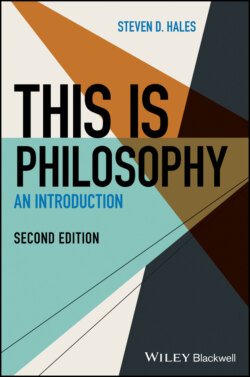Читать книгу This Is Philosophy - Steven D. Hales - Страница 16
Objection 3: equal treatment.
ОглавлениеThe third objection to ethical egoism is that it violates an intuitively plausible constraint on moral theories, namely the principle of equal treatment.
Principle of equal treatment: Two people should be treated in the same way unless there is a relevant difference between them.
The Principle of Equal Treatment does not require that everyone be treated alike; it allows variable treatment. Discrimination gets a bad name because people tend to conflate reasonable discrimination with unreasonable discrimination. If you were choosing up sides for a basketball team, no one would expect you to pick an overweight 4´11˝ senior citizen over a 6´11˝ college athlete. Fitness, age, and height are all relevant criteria for basketball performance. Likewise if you’re hiring someone to be the pastor of your church, it is reasonable to expect that a successful candidate will follow that religion. Atheists need not apply. These are cases of discrimination–treating people differently–but there are relevant differences that make the varying treatment permissible and expected.
The cases in the preceding paragraph are judicial discrimination. There is also prejudicial discrimination, which is more pernicious. If one picks basketball players on the basis of religion, or hires a pastor on the basis of height, then that is treating people differently when there is no difference among them relevant to basketball or job performance. It is because those cases violate the Principle of Equal Treatment that we tend to regard them as cases of immoral treatment.
The problem for ethical egoism is that egoism counsels each person to treat everyone differently from how they treat themselves, irrespective of whether there is any relevant difference. As an ethical egoist you will act to advance your own interests regardless of how that may affect the interests of others. However, the Principle of Equal Treatment states that you should treat two people the same unless there is some relevant difference between them. What, then, is the relevant difference between you and everyone else that you should give no weight whatsoever to their preferences? Ethical egoism implies that you are so unique and special that you ought to treat every other person differently from how you treat yourself, since you should care only about promoting your own interests. You’re you; that’s true. But what makes you so special? In fact, runs the objection, none of us is so special that we should each treat ourselves completely differently from how we treat every other living creature. In short, ethical egoism is just a form of prejudicial discrimination, and for that reason should be discarded.
If you think the costs of ethical egoism are too high for its benefits, then you should consider other moral theories before making a purchase. Here’s another popular contender.
